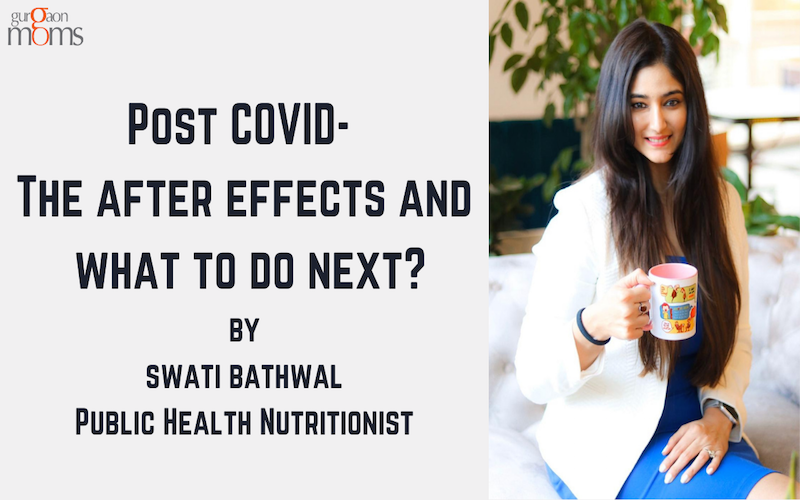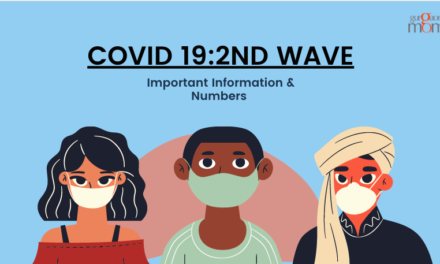Before I begin this article, let us understand the three main characteristics of a novel virus to cause a pandemic. In order to order to be a pandemic, there should be no pre-existing immunity of the virus, it must be a respiratory spread and its transmission should be before the onset of its symptom. If we consider these three characteristics, COVID 19 virus meets all the criteria to have a pandemic impact. The incubation period of this virus is about five days, which means we have almost a week between the moment we get sufficiently exposed to the virus. Imagine, just before even we know it, we have been infected with the virus. And I am sure many of you relate to this.
COVID 19 pandemic has affected many families across the globe, it has left a huge impact on people across the various social-economic status of the society, whether they are less or more privileged in money, power or fame, it has not distinguished anyone. As compared to other viruses existed on planet earth, COVID 19 virus is different. As many COVID warriors have battled fighting this COVID war, it has left after-effects in many.
In this exclusive Q and A with India’s one of the most influential groups, GurgaonMoms, I shall take you through a Q & A.
1. What to do when we feel tired frequently during post COVID recovery?
It is not unusual to feel tired after a virus attack. There are a few nutrient strategies to follow to get the energy back. I suggest eat small meals and frequently to build the appetite. I suggest consuming a small breakfast if you are unable to eat the entire meal and space it over snacks or in between meals. Energy building foods like soaked nuts, milk-based drinks, khichari, barley water, daal, cooked sprouts, well-cooked eggs white to name a few are helpful. Hydration is the key. If you are unable to maintain oral intake of solid foods get some fluids like barley water, coconut water, lemonade, home-prepared fruit and vegetable juices, herbal teas, and consume ORS water if need be. Drinking in sips is the key to hydration. Fortify foods with protein-rich foods like daal to chappati or whey water to khichadi, chickpea flour, daal flour to chappati’s, add flaxseed powder to milk to meals.
2. Are there any fruits and vegetables to include in the diet?
All fruits and vegetables should be consumed as long as they are washed properly. I suggest add colours of the rainbow to your diet. Add greens like spinach, parwal, snow peas, bitter gourd, ash gourd, beans, capsicums, broccoli they are not only rich in iron, fiber, vitamin c but they are also sources of several vitamins. Red colour fruits and vegetables have a compound anthocyanin which is heart-protective and have many other health benefits and the list goes on. So, definitely incorporate as many colours as you can.
3. What food should be avoided?
Avoid fried foods, eating out, and take away foods. Remember, our body uses 80% of energy in digestion and 20% in healing. So, we should eat foods which are easy for our body to digest. Fried foods are difficult to digest by our body.
4. Is there any alternative to kadha or shall we continue drinking?
Kadha is an excellent drink to build immunity but it can also build excess heat in our body. I suggest drink decoctions with different ingredients like turmeric with black pepper and honey or a mix of lemon, tulsi, and ginger. I always boil my water and add some lemon and orange slices and turmeric powder and black pepper and sip through. Remember, it is the variety in drinks which are important.
5. Shall we consume non-vegetarian foods?
As long as you consume well-cooked food it should be safe to consume chicken, eggs, and fish. There is no evidence that consuming non-vegetarian foods can increase the risk of COVID 19 infection. However, fried foods and fatty cuts of meat and chicken can make it difficult for the body to digest these meals
You may also read : Top Foods that Help Boost Immunity in Kids
6. Shall we exercise during post COVID recovery?
I suggest let your body recover well. Give yourself 3-4 weeks to recover completely. Some people continue to have shortness of breath or difficulty in breathing post-COVID infection, so build the strength and let your body recover well. If you still want to get some movement, do stretches, light yoga movements, and pranayam to improve your lung health.
7. I am having massive hair fall, what to do next?
It is quite common to have hair fall after an infection. This could be due to the loss of several vitamins and minerals from the body. Many times, the use of antibiotics brings an imbalance to our gut flora hence it reduces the absorption of certain vitamins and minerals. Diarrhea, lack of food intake can cause hair fall, brittle nails, and dry skin. I suggest to prevent hair fall start biotin, zinc, and selenium. Check your iron levels too. Along with a biotin supplement, I suggest consuming a tablespoon of mixed seeds like pumpkin, sunflower, and sesame seeds a day.
8. What precautions shall be taken by people with diabetes and blood pressure or any chronic condition post-Covid recovery?
Pre-existing health conditions like high blood pressure are at twice the odds of suffering a severe course of COVID 19 virus then cardiovascular diseases three times the odd, COPD, asthma appear to be at the highest risk with six times the odds of a severe course of COVID 19 and nearly eighteen times the odds of ICU admissions. Other high-risk groups are people with excess weight and exposure to air pollution. Excess weight is an issue because excess body fat may cause restricted breathing caused by excess fatty tissue in the upper body. The main precautions to be taken are social distancing, hygiene, practice safety measures, and continue to build immunity by maintaining good levels of serum vitamin D, vitamin c, mild to moderate exercise, stress-free
7. Is our gut health important for us?
Continuous use of antibiotics can disturb our gut microflora. It is necessary for our gut health to be in balance. Consume buttermilk with curry leaves, eat fermented foods like idli, dosa, appam, dhokla, khandvi, pakha rice (cook rice and let it ferment and consume it next day), fermented rice water, miso soup, and kimchi. These fermented foods contain probiotics that help to maintain or replace our gut-friendly bacteria back in our diet. Adding some prebiotic foods (what probiotics feed on) also needs to be eaten like oats, banana, or garlic.
10. Shall we continue taking zinc and vitamin c?
It is not a bad idea to supplement with a good multivitamin for a month. You don’t necessarily need to continue zinc and vitamin c supplements if your diet is well balanced. If your diet is balanced it is less likely that you will be zinc and vitamin c deficient.
11. What future protection is required against COVID 19?
Continue to follow protocols mentioned by the AYUSH ministry, WHO, and other health organizations. Wash fruits and vegetables thoroughly sanitize, wear a mask, and maintain social distancing.
12. Is there any relapse or chances of getting COVID again?
There is no evidence that if you develop COVID antibodies, there won’t be a relapse. It is better to be safe rather than sorry.
All the above advice is based on current research and evidence-based information for the general population. However, please consult your health practitioner where needed.





